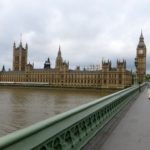Neil McInroy
Interview: New approaches for Local Economic Development
An interview from Neil McInroy’s recent trip to Barcelona
The devolved state we are in!
After decades of oppressive centralisation, many of us have welcomed the promise of a ‘devolution revolution’ for our cities and Local Authorities. We have been expectant, that this will herald a new local municipalism of economic success and social inclusion. However, with ongoing global economic issues, Brexit, the Treasury’s economic model and the endless yoke of local authority austerity, we may need to seriously downgrade our expectations.
The new mainstream
Brexit and ongoing economic and social troubles has exposed the choices. On the one hand, there is a progressive choice – greater inclusion, hope, social growth and a narrowing of the gap between the haves and the have-nots. On the other, there is a more reactionary choice – fear, more divisions, economic growth for a few, and a deepening hardship for many.
The State Of The City – Manchester In 2017
Jonathan Schofield asks what might happen with an Elected Mayor and a departed Bernstein
Making Wealth Work for all
Birmingham City Council is joining with the Centre for Local Economic Strategies and Barrow Cadbury Trust to examine how anchor institutions can boost local economic opportunities. Neil McInroy and Matthew Jackson explain the approach and the need for a closer look at growth.
Tackling Poverty Locally
Neil McInroy wrote this article for New Statesman. As part of the ‘Forging a good local society: tackling poverty through a local economic reset’ research work for Webb Memorial Trust
Solving poverty: the promise of inclusive growth?
In her conference speech, Theresa May committed her government to achieving ‘an economy that works for everyone’. In this, she is touching on a point that many of us have known, and sought to respond to, for decades – that poverty and inequality persist, that this is unacceptable and that the prevailing economic model leaves too many people behind. The question is, how far is the government prepared to go in solving systemic poverty and inequality?







